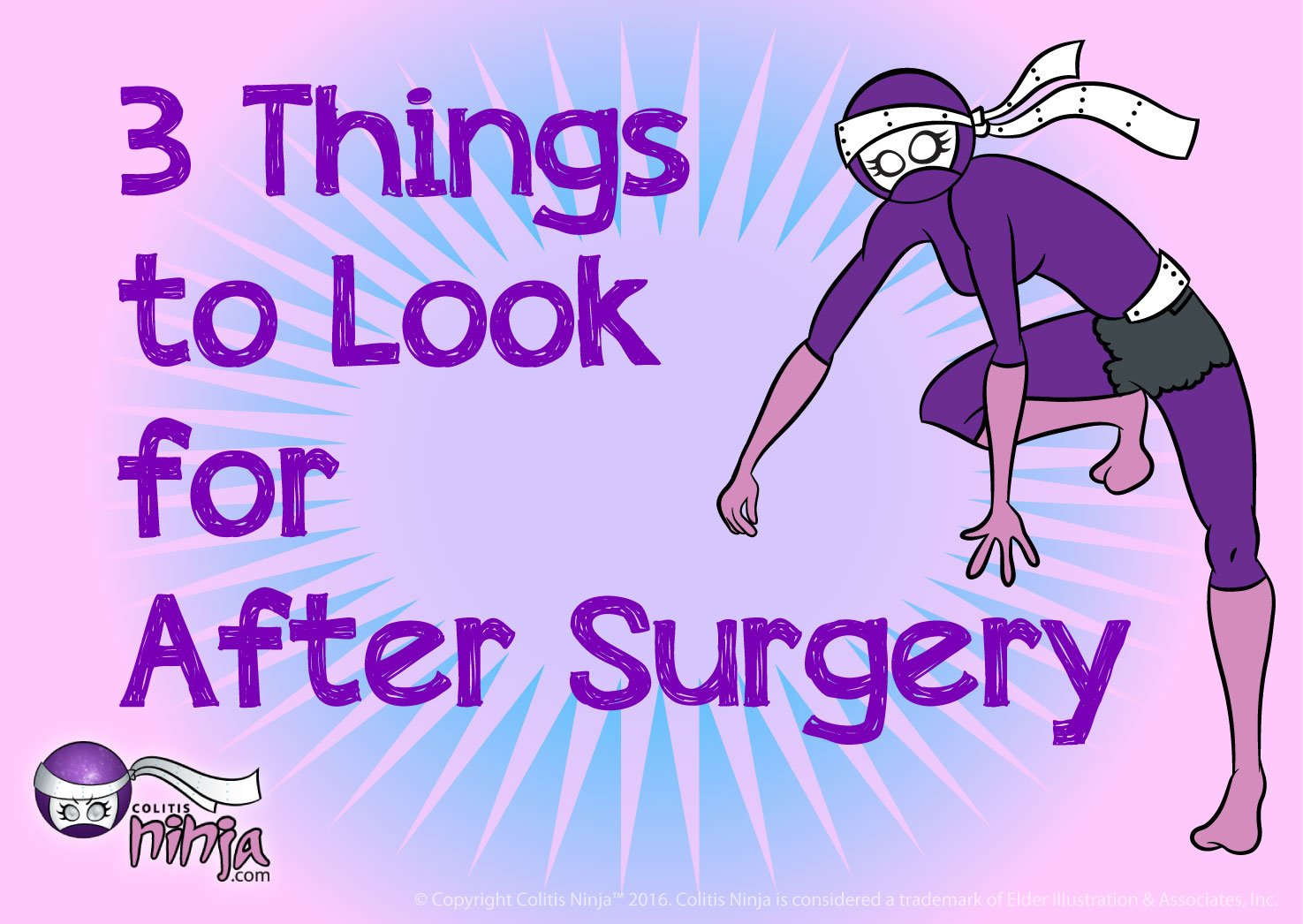3 Things to Look for After Surgery
To be completely honest, I wasn’t sure what to expect after surgery. I had a lot of people telling me what I would need and giving me tips on how they got through the recovery process.
Honestly, though? I’m not sure you can ever fully prepare because everyone’s experiences are different. Here are some things to look for or be aware of after surgery (NOTE: Having surgery does not mean that you will experience any of these things, but you do need to be aware of things that could happen.)
Urinary tract infections or constipation after surgery
A few people have problems urinating and having constipation after surgery. This is one of the lovely after-effects of anesthesia.
It is important for your doctors/nurses to monitor this closely to avoid any potential bladder infections due to problems urinating. Your brain isn’t the only thing that is “asleep” during surgery. Your bowels are, too, and they often have more trouble waking up.
The more surgeries you have, I’m told, the longer it takes your bowels to wake up afterward. Catheters can also cause UTIs, so you want to report any burning sensations to your doctor right away!
Muscle spasms and trouple sleeping
When I had my colon removed, I remember having intense abdominal pain and muscle spasms. The slightest touch would send my belly into a fit of spasms. It was awful.
And sometimes, the spasms would wake me in the middle of the night! Thankfully, my doctors and nurses helped control this with pain medications that also reduced the spasms. It didn’t completely eradicate the problem, but it helped a lot.
Intense pain after colon removal
Waking up from surgery, I remember the nurse asking me what my pain was, I told her 8 or 9. She was shocked. I’m not sure why. I was cut open from navel to panty line and had a major organ removed!
Of course, there was going to be pain. Thankfully, though, it was a different kind of pain. I was no longer living with a burning, angry colon.
An abcess developed after surgery
After my surgery, I developed an abscess (infection) in my incision. I was on Prednisone, so it wasn’t caught right away (Prednisone suppresses symptoms).
It was a couple of weeks before we noticed there was a problem. If you have a persistent fever, a wound that continues to weep with a milky or yellow/green substance, swelling, redness, or pain, report it to your surgeon!
Speak up if something doesn't feel right after surgery
If you are dismissed, and the problem persists, keep reporting it until someone takes you seriously. You are the one who is dealing with your healing body. I was fortunate to have a home health nurse who watched it closely and insisted that I go to the Emergency Room.
I was even more fortunate to have called my doctor’s office to tell them that I had a problem. The ER doctor dismissed me due to the fact that I wasn’t showing any serious symptoms. So my surgeon’s assistant came to the rescue and sure enough, I had an abscess the size of a small lemon in my “beautiful” incision.
Surgery is hard on a lot of people. It can be even tougher on people with compromised immune systems. For this reason, it is vital that you have caring doctors who work hard to ensure that you are well cared for so you can catch problems before they get out of hand!

Join the conversation